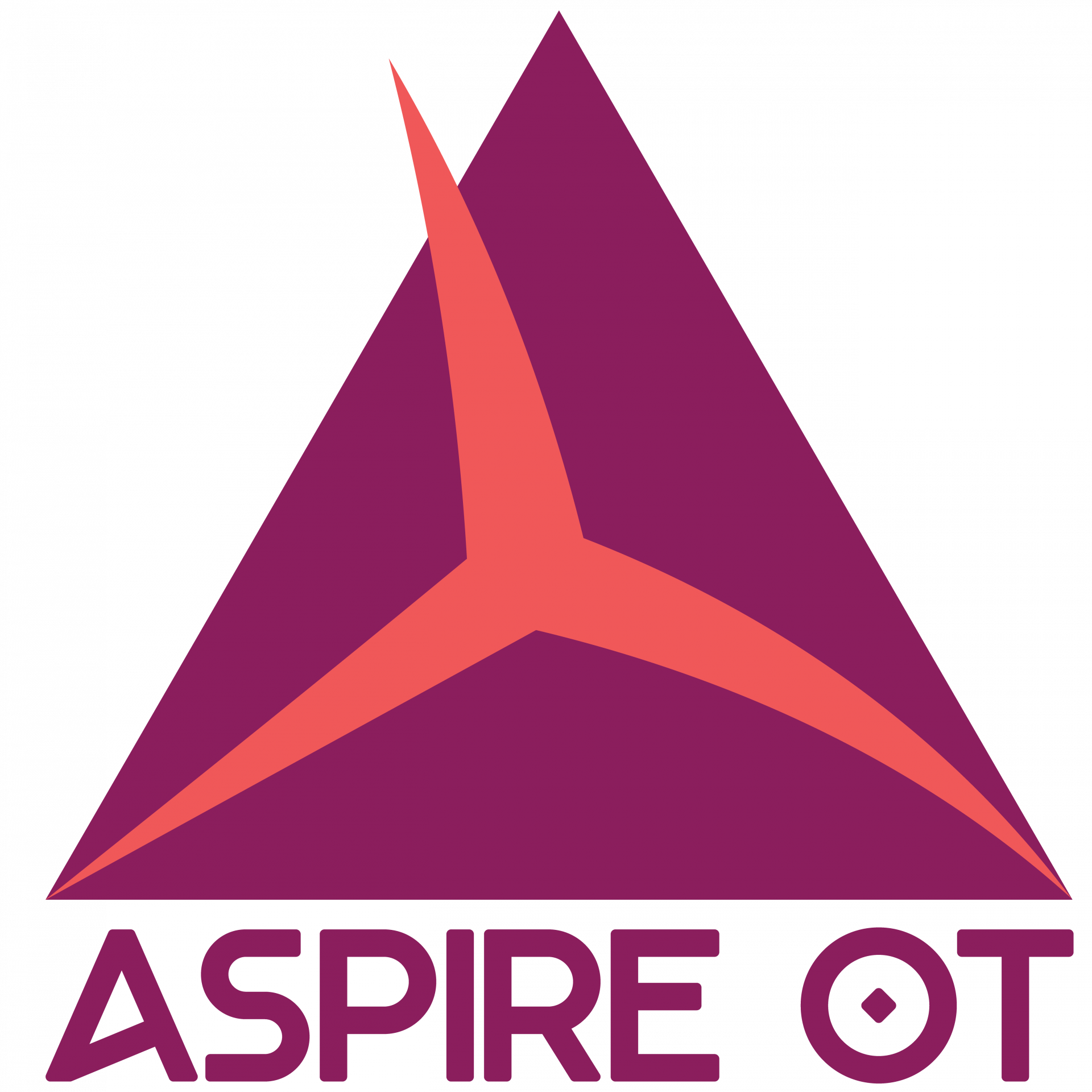
I'm
sorry.
It was a
statement that stopped me recently when I heard my client say it. This is a
statement that I hear patients say from time to time. I've always automatically
re-assured them an apology was not needed for whatever action had triggered the
response.
This date was different. For some reason, I had a light bulb moment. That automatic response all the times before was actually me failing the client. I was failing to respond to what all those clients before were really trying to tell me. It was time for me to be more client-centered in this moment.
This time I paused (at least inside of my head) and tapped into my curiosity and utilized my occupational therapy training in mental health including therapeutic use of self. What was triggering this apology and how could I address the psychosocial factor at play here?
If a client is apologizing over not performing "just perfect" during OT, do they have perfectionistic tendencies and possibly unrealistic expectations for themselves? Do they fully understand the barriers and their strengths for getting past those barriers? Could it be a low frustration tolerance is at play? These are all factors that could lead to the client to express they are feeling their performance is lacking. And ultimately, this feeling is going to impact their outcomes.
If a client is apologizing because they aren't independent yet and still require assistance, could it be that they don't feel worthy of having help? Are they embarrassed or even feeling that they are burdening the caregiver (or even the OT practitioner working with them)?
So that day, I just asked questions:
The answers lead both the client and I to identify some of the underlying cognitive distortions and emotions that were causing the apology. This opened the door to allow me to use some cognitive behavioral therapy to address the distortions including the client identifying a mantra to repeat as needed that helped reframe the belief in a way that would be beneficial to recovery. The client spoke as the session ended how they felt more supported and how helpful the mantra was going to be.
So the next time that a client says I am sorry, take a moment, be curious, and ask questions, use your OT psychosocial training, because it could prove to be very helpful for the client.
Written by Niccole Rowe, Occupational Therapy Assistant, Instructor, Coach and Founding Partner
This date was different. For some reason, I had a light bulb moment. That automatic response all the times before was actually me failing the client. I was failing to respond to what all those clients before were really trying to tell me. It was time for me to be more client-centered in this moment.
This time I paused (at least inside of my head) and tapped into my curiosity and utilized my occupational therapy training in mental health including therapeutic use of self. What was triggering this apology and how could I address the psychosocial factor at play here?
If a client is apologizing over not performing "just perfect" during OT, do they have perfectionistic tendencies and possibly unrealistic expectations for themselves? Do they fully understand the barriers and their strengths for getting past those barriers? Could it be a low frustration tolerance is at play? These are all factors that could lead to the client to express they are feeling their performance is lacking. And ultimately, this feeling is going to impact their outcomes.
If a client is apologizing because they aren't independent yet and still require assistance, could it be that they don't feel worthy of having help? Are they embarrassed or even feeling that they are burdening the caregiver (or even the OT practitioner working with them)?
So that day, I just asked questions:
- "I noticed that you apologized. Would it be okay if you shared with me what you were feeling that lead you to say that?"
- "Do you find that you apologize a lot? Why do you think that happens?"
- "Do you always have high expectations of yourself?"
The answers lead both the client and I to identify some of the underlying cognitive distortions and emotions that were causing the apology. This opened the door to allow me to use some cognitive behavioral therapy to address the distortions including the client identifying a mantra to repeat as needed that helped reframe the belief in a way that would be beneficial to recovery. The client spoke as the session ended how they felt more supported and how helpful the mantra was going to be.
So the next time that a client says I am sorry, take a moment, be curious, and ask questions, use your OT psychosocial training, because it could prove to be very helpful for the client.
Written by Niccole Rowe, Occupational Therapy Assistant, Instructor, Coach and Founding Partner
Occupational therapy addresses the whole person,
which includes their psychosocial needs
OTs, OTAs and students are uniquely qualified and trained to assess and treat mental health no matter what setting they are practicing in. Aspire OT provides continuing education that will grow your Mental Health Toolbox!
Occupational Therapy Courses Addressing Mental Health
Want more?
Find courses that will provide you with practical strategies you can take straight to your OT practice.
Don't Miss A Thing!
Follow us on social media to stay up to date on all of our latest postings.
Join our newsletter
Get weekly updates on new blog posts, webinars, on-demand courses and more right in your mailbox.
Thank you!
Write your awesome label here.
Coaching, JUST for OT Practitioners Interested in
Implementing Psychosocial Interventions into Everyday Practice
Are you an occupational therapist, occupational therapy assistant or student who isn't sure how to address the psychosocial needs of your clients in your non-mental health setting?
Just for OT Coaching is here to help you. Let Kim and Niccole share their experiences in implementing psychosocial assessment and treatment into non-mental health settings to help you be successful!


